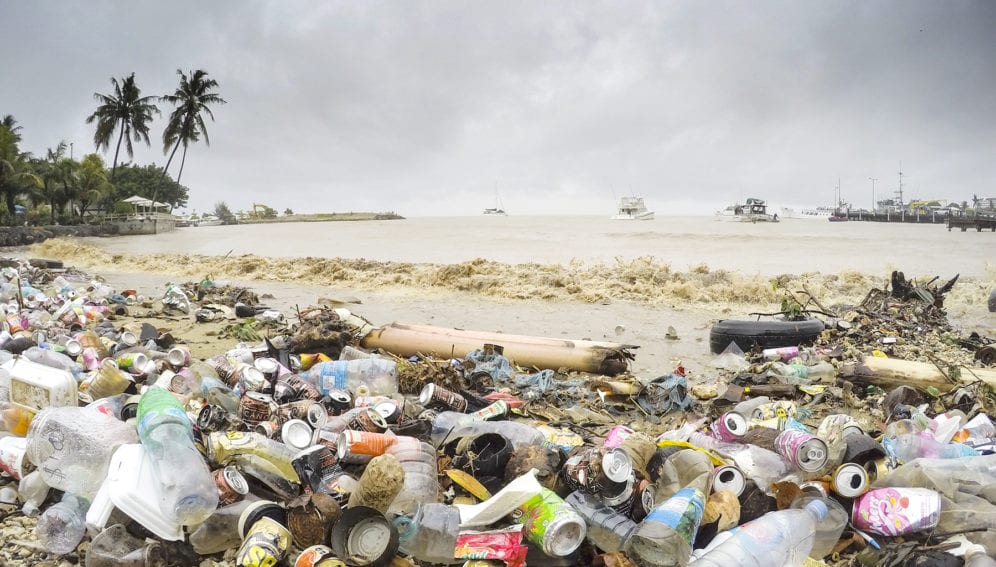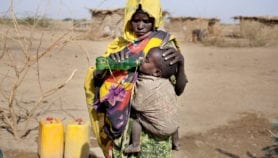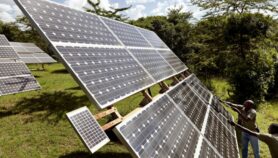02/08/19
Africa to suffer severe impacts of environmental risks

By: Baraka Rateng’
Send to a friend
The details you provide on this page will not be used to send unsolicited email, and will not be sold to a 3rd party. See privacy policy.
[NAIROBI] Climate change could lead to drying trends in Africa with the Sahel region encroaching further south and triggering the migration of animals and plants, experts say.
The Sahel region which extends just below the Sahara desert and includes parts of countries such as Algeria, Burkina Faso, Cameroon, Chad, Eritrea, Ethiopia, Mauritania, Niger, Nigeria and Sudan had about 30 million people struggling with food insecurity in 2018, according to the United Nations Office for the Coordination of Humanitarian Affairs.
Experts warn in an article published in Nature Sustainability last month (22 July) that climate change and human activities could exacerbate environmental risks in the Sahel region resulting in migration of people, disruption of livelihood and potential conflicts.
“The temperature tolerances of local sorghum and millet varieties will probably be exceeded,” says the article. “Future societies face the options of importing heat-tolerant varieties, developing new varieties, switching crop types altogether or abandoning farming.”
“We believe these risks will be increasingly important and impactful in a connected world.”
Nathanial Matthews, Global Resilience Partnership
Nathanial Matthews, co-author of the article and programme director, Global Resilience Partnership, tells SciDev.Net that Africa has its coastal cities being more susceptible to global environmental risks.
According to the article, irrigation in India contributes to up to 40 per cent of rainfall in East Africa in some months.
“If communities in India improve sustainable agriculture practices (reduced irrigation and groundwater depletion) then pastoralists and farmers in Africa could suffer,” the article says.
Matthews adds, “We believe these risks will be increasingly important and impactful in a connected world and we are already starting to see the implications of them.”
Addressing the scale and magnitude of global environmental changes facing us will require confronting the underlying reasons for the unequal distribution of power and wealth, Mathews explains.
“Africa has a large rural population — currently around 63 per cent in Sub-Saharan Africa — and large parts of this population are living in poverty, with limited food and water security,” says Matthews. “The need for resilience is critical here as it enables people to thrive in the face of uncertainty and uncertainty is the new norm.
He adds that decision-makers will need new tools and considerations of power, equity, ethics and justice to address the risks.
Alice Kaudia, a former Kenya’s environment secretary, agrees with the experts and says that Africa is the most fragile continent in regard to negative impacts of human-induced environmental degradation.
“This is because of the high vulnerability to climatic change as aggravated by poverty, poor governance systems, inequality and limited adaptation capacity,” says Kaudia, a consultant on climate change solutions.
The article is highly relevant and should inform agricultural, environmental and climate change response policies and action plans, she adds.
But Kaudia tells SciDev.Net that there is a need to study environmental risks at sub-national and village levels rather than the current focus on national level because human-environment interactions are best understood at a smaller scale.“Socio-economic activities that contribute to environmental degradation tend to be localised even when driven by larger scale demands,” she explains.
This piece was produced by SciDev.Net’s Sub-Saharan Africa English desk.
References
Patrick W. Keys and others Anthropocene risk (Nature Sustainability, 22 July 2019)













